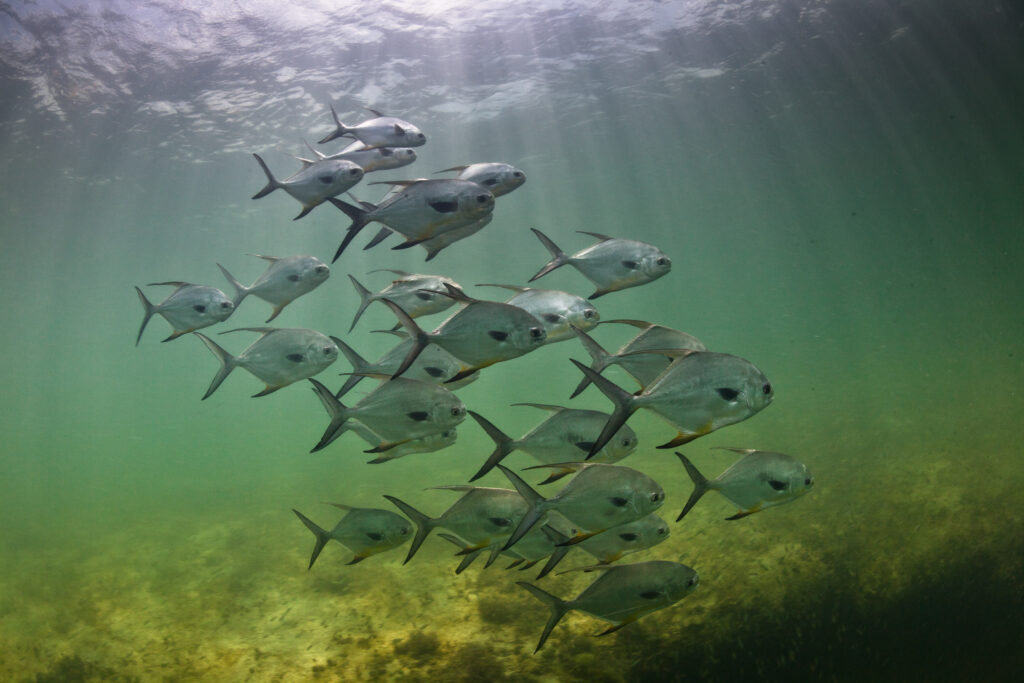A school of permit in Mexico. Photo: Marc Montocchio
Are you planning to attend BTT’s 7th International Science Symposium & Flats Expo November 4-5 at PGA National Resort in Palm Beach Gardens, Florida? Here are three panels not to be missed! And if you haven’t registered yet, space is running out fast. You can join us at this triennial event sponsored by Costa Sunglasses by registering HERE. View the complete schedule HERE.
JUVENILE HABITAT MANAGEMENT AND RESTORATION PANEL
November 4, 10:45 – 11: 45 a.m., Canterbury Room
Habitat loss and degradation are among the top threats to coastal fisheries worldwide, and this is especially true to species that are catch-and-release or harvested but well managed. Of particular concern are habitats that support juvenile life stages, with coastal habitats such as wetlands among the most endangered. Although the importance of juvenile habitats to successful fisheries conservation and management has long been realized, thus far juvenile habitats have not generally been included in fisheries management actions. The panel will discuss the numerous strategies that might be used to shift the management paradigm so that these important habitats are appropriately included in fisheries management.
CONSERVATION ENGAGEMENT PANEL
November 4, 2:30 – 3:30 p.m., Canterbury Room
Stakeholder engagement is essential to conserve ecosystems, associated biodiversity, and the fisheries that depend upon healthy ecosystems. Outdoor recreation specialists, such as flats anglers, represent a stakeholder group that have unique incentives to contribute to conservation and stewardship. Although engagement of flats anglers and others who depend on healthy coastal ecosystems is important and has been increasing, it has not yet scaled up sufficiently to influence policy and angler behavior (ethics) at meaningful levels. The panel will discuss ways to be more effective and efficient in engagement that empowers stakeholders to become conservation advocates.
SPATIAL MANAGEMENT PANEL
November 5, 2 – 3 p.m., Canterbury Room
The scales of fisheries management and the biology of managed species are mismatched for coastal fisheries. Fisheries management is based on jurisdictional boundaries, whereas life cycles of all flats species and most coastal species cross jurisdictional boundaries via migrations and larval transport, both within and between nations. Similarly, the spatial dimensions of fish movements, ontogeny, and habitat use both within and between jurisdictional boundaries are not incorporated into management. An intact, unfragmented, coastal habitat mosaic with good water quality is required for the sustainability of coastal fish species, yet this receives insufficient attention in fisheries management. As information further delineating the habitat mosaic and cross-jurisdictional boundary connections come to light, it is essential that this guides management revisions that take a broader spatial approach to flats fisheries management. The panel will propose and discuss management policy revisions to include spatial information in flats fishery management.




